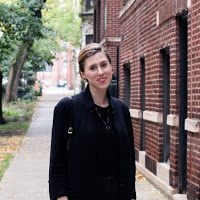Social media is possibly one of the most powerful tools we have to transform the world for ourselves and others, but only if we take the time to shape it effectively.
Hello there, thank you for your willingness to be lured in with this clickbait title I’ve so carefully crafted for this social commentary, if you will, about how we live in a world that’s more connected yet paradoxically lonelier and more anxious than any time in history.
I have no empirical evidence to support this statement, beyond my personal experiences with social media, late night googling, and growing suspicion that our constant social referencing is somehow tied to the burgeoning mental health crisis in this country—you know, that thing we all know about, but rarely talk about, and do a pretty bad job of solving.
That said, it seems fitting to kick off this post with a personal example. One Sunday morning a few weeks ago, while sitting in my pajamas, I was scrolling through Instagram and stumbled on the following images:
>> Kayla Itsines doing box jumps in a sports bra with incredible abs, an amazing tan, and fabulous hair.
>> A girl from my high school with a beautiful apartment, a successful business, and a bajillion followers.
>> Dwell magazine’s photo of a $10 million mansion in Hawaii.
>> Alexa Chung at the airport, taking a selfie with an ironic caption that was so cool I barely understood what she meant.
>> A quote about becoming a hustling boss babe.
This is what my mind did in response to those images:
>> “She is so beautiful, tan, and fit. Which reminds me that I’m smushy and pale. Why can’t I break my red wine and chocolate addiction? Maybe I should join her BBG program so I can do box jumps in a bikini and feel great about myself.”
>> “Have I made bad career choices? Should I have moved to NYC after college and suffered through an overpriced English basement apartment and survived on Ramen noodles for years in order to be doing what I love today?”
>> “Wow. What an amazing place. What do I need to do in life to have that house? Is it too late to return all my furniture for Scandinavian minimalist designs?”
>> “She is so cool and cosmopolitan and irreverent. I spend many hours a day in a cubicle working for the man and try really hard at everything. Was trying ever cool? How did I end up such a square?”
>> “The thought of hustling makes me anxious, and I think that if I ever said ‘boss babe’ out loud, my inner feminist might shrivel up and die. But this pink picture has 124,657,204 likes. Am I just unmotivated? Unlikely to succeed?”
My point is, the images we’re presented on social media make us feel and think something—usually about where we stand in our realities compared to what is happening in the picture. We tend to fall short, doubt ourselves, and fail to appreciate everything amazing about our lives because we’re too busy being reminded of what we are not.
Although I consider myself to be a pretty confident person, social media has the power to make me feel less than, not enough, left out, left behind, and lonely. And it’s happened often, especially in periods where I’ve been stressed and a bit down about it (after a fight with my husband, a challenge at work, an attempt to try on restrictive silk pants, and so on).
That sense of being separate, different, misunderstood, and alone drives anxiety. And it’s not just my suspicions here, I’ve got some facts on this: Freud himself linked solitude with anxiety, and noted that the first phobias we develop as children relate to being alone.
Fear of separation—in terms of abandonment, rejection, isolation, and loss of connectedness—is one of the five fears we all share as human beings. We want to belong, to be accepted for who we are, to be liked, and to be approved. A great way to feel like we don’t belong, won’t be liked, accepted, or approved is to carry the belief that perfection exists and other people are achieving it while we’re still trying to remember to take the cardboard tray out from under the frozen pizza before we put it in the oven.
Along with making us feel isolated and anxious, the constant exposure to a seemingly endless stream of hot, happy, and perfect people on social media discourages us from sharing what we’re actually experiencing. Instead, we play along with the clichés, post beautiful photos of ourselves and our lives, and leave loving messages to our significant others in social media forums they don’t use. We call it a highlight reel, and there’s nothing inherently wrong with that. It becomes wrong when we forget that it’s not real—which is easy to do, considering that nearly 75 percent of people in the United States own a smartphone and spend roughly two hours per day browsing social media. Folks, that’s a solid 30 days per year—a full month—that we spend staring at hot people and their perfect lives on Instagram (okay, and maybe cat videos on YouTube and Amazon Prime deals).
Given the sheer volume of users and hours spent on projecting perfection, it seems to defy reason that we somehow expect our subconscious minds to separate the two realities in how we process it all. Even worse, not only is all this staring at hot people with perfect lives making us feel bad about ourselves and making us anxious, it’s also making us less tolerant of imperfections in others.
Okay, I get it. So what do we do about it?
Unfollow the hot people!
Wait, all of them?
No, no, that’s not right. And if you’re still with me at this point of the article, we both know that hot perfect people aren’t actually hot or perfect, and me sitting here in my bathrobe, or you sitting there reading this in your pajamas, could, with the right hair products and highlighter and filters and photo editing tools, also pretend we are hot and perfect. But honestly, what’s the point? It begs the question of why we use social media in the first place.
There are a lot of reasons to use it, including to feed our own egos, to entertain ourselves, to stay connected with friends and family, to document our life journey so our children can enjoy it when we’re dead, and so on. I’ve started thinking about social media and the reasons we use it from two lenses, considering that we’re all producers and consumers but tend to have different reasons for what we produce versus consume.
From a production lens point of view, I think we will always want to project our lives in a positive light, and that’s a good thing. Especially when you’re considerate of the fact that everything you put into the world has an effect on other people’s minds. It’s making me think that producing content comes with a responsibility to be authentic, to consider the impact on the audience, and to speak in a way that you’d speak to your best friends. Meaning that maybe we should be reading out loud everything we’re planning to post to confirm that it’s actually something we’d be willing to say to real people we care about. And maybe we should be asking ourselves if the images we’re presenting will add value, entertain, and bring joy to those who will consume it, instead of simply making us look beautiful, wealthy, curated, and perfect.
From a consumption point of view, I think we often allow content to be pushed into our worlds rather than taking some proactive steps to be intentional and selective in what we invite into our lives. Thinking about consumption of social media reminded me of why I dropped off of Facebook so many years ago after a particularly difficult bout of FOMO (fear of missing out, for those fortunate enough to have avoided this terrible ailment of a hyper-connected world).
Because I moved often for my job, I went through periods where I had no (geographically desirable) friends. My mom would be too busy to talk to me, and I never figured out how to use my TV, so I’d log on to Facebook and see hundreds of people I knew having a lot of fun and not sitting alone in a tiny apartment on a Saturday night with nothing better to do than click through Facebook photos in a trance.
One fateful night, 300 pictures in on the profile of some girl whose name I should have forgotten years earlier, I happened upon a fetus (who is now probably a kindergartner). I was startled. People my age had it together! They were getting married! Putting babies in utero on the internet! Buying McMansions! I got sort of panicky looking at the ultimate manifestation of adulthood that was imminent, looming in front of me via the lives of my peers but also extremely far from where I was in life. I deactivated immediately, never looked back, and was cured.
I just didn’t want it in my space anymore, and it’s been so long since I’ve used it that I was literally like a 95-year-old woman trying to program a DVR when I finally reactivated my account in the fall on a hunt for old photos. It inspired a massive unfollowing spree—anyone who I didn’t know or care to have popping in to the front of my consciousness.
And that unfollowing spree spread to my Instagram account, where I got rid of entire categories. All fitspo, gone. All models, gone. All those who have ever posed in a pumpkin patch in a non-ironic way or without children, gone. All those who were trying to sell me things I didn’t need so they could earn a margin—gone.
And what was left was amazing! People who make me laugh, make me think, make me want to become more like them because of their general awesomeness, people who I know and love, people who I hope to know someday. And they’re no longer being crowded by stupid sh*t and fake hot people, which means that my Instagram feed is now a happy place, one that makes me feel refreshed and energized when I open it.
Some people say that social media is silly and would think my writing a giant essay on it is a waste of time. But I think social media has massive power to drive thoughts and beliefs, to influence action, to elect presidents, to make us stressed and depressed, to drive us to spend money we don’t have to impress people we don’t like, to take something away from the joy that it is to be alive! For these reasons, it has equal power to sway thoughts and beliefs and behaviors in a positive way, to help us build meaningful connections and better understand ourselves and each other. Social media is quite possibly one of the most powerful tools we have to transform the world for ourselves and others, but only if we take the time to shape it.
~
~
~
Author: Colleen Bordeaux
Image: Unsplash/Dominic Lowyears
Editor: Travis May
Copy & Social Editor: Nicole Cameron
 Share on bsky
Share on bsky





Read 6 comments and reply